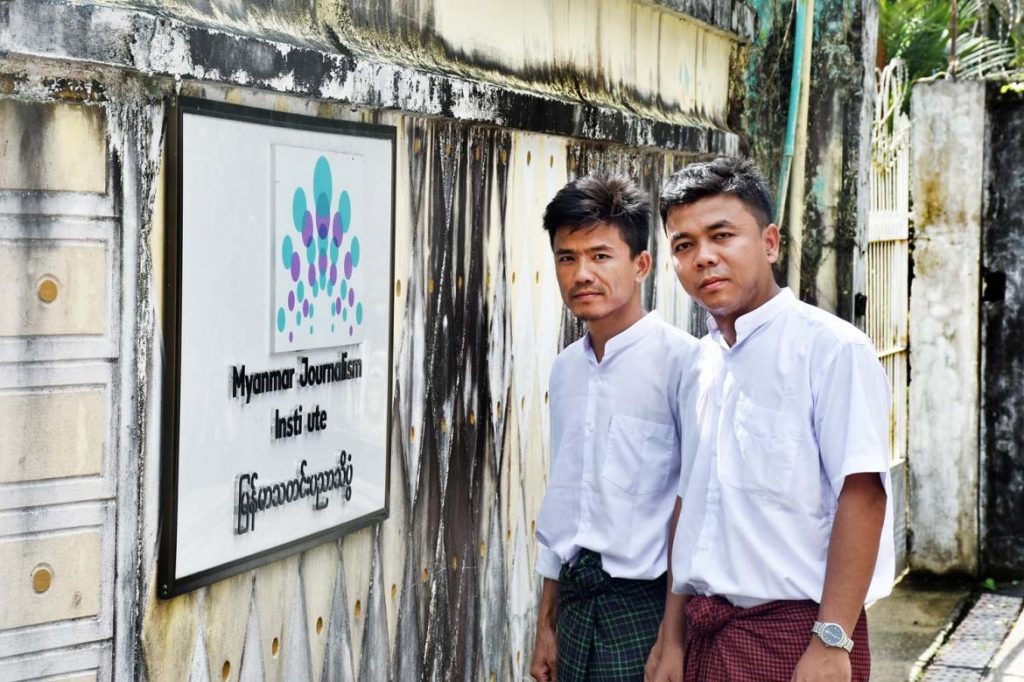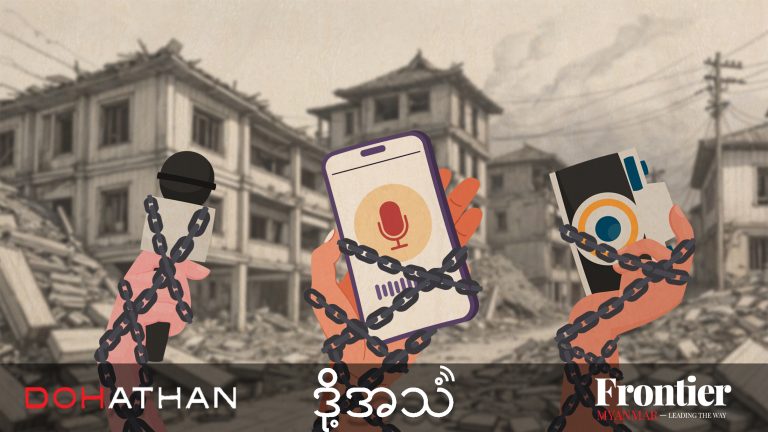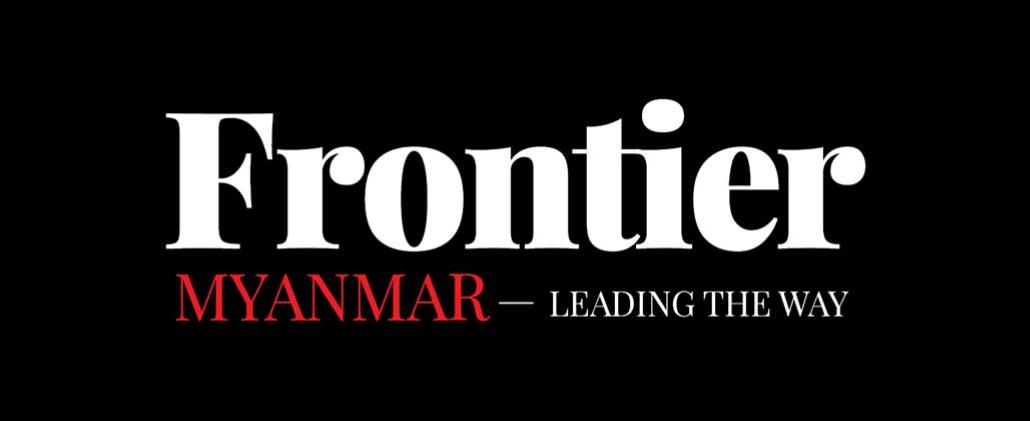It’s a difficult time to be a journalist in Myanmar and students at one of the country’s leading journalism institutes are aware of the challenges ahead as they seek to build careers in the media.
By VETA CHAN | FRONTIER
THE MEDIA in Myanmar underwent dramatic changes after the transition to democracy began in 2010, said U Kyaw Min Swe, as he sat as his desk editing news reports. Within two years, the suffocating restrictions that had existed through nearly 50 years of dictatorship were gone.
“In the past, we needed to submit everything [to the junta’s Press Scrutiny and Registration Division], including advertisements,” he said, referring to the onerous pre-publication censorship that was abolished in August 2012. “Now, everyone can write anything.”
However, some recent developments have not pleased Kyaw Min Swe. The executive director of the Myanmar Journalism Institute and editor-in-chief of The Voice Weekly journal said media freedom had gone backwards since the National League for Democracy government took office in 2016 after its landslide election victory the previous year.
“Just look at the statistics; more reporters have been arrested and sentenced since 2015, including the two Reuters journalists,” he said, referring to Ko Wa Lone and Ko Kyaw Soe Oo. They were arrested under the Official Secrets Act in 2017 while investigating the massacre of 10 Rohingya men and boys in Rakhine State and were sentenced in September 2018 to seven years’ jail.
Support more independent journalism like this. Sign up to be a Frontier member.
In its 2018 world press freedom index, Reporters Without Borders ranked Myanmar 137th out of 180 countries and territories. Reporters Without Borders said about 20 journalists were prosecuted in Myanmar last year, including the two Reuters journalists.
Kyaw Min Swe expressed concern that the jailing of journalists would deter people from seeking a career in the media. The new generation was worried about working in the media because of “the sentencing and jailing” of journalists, he said, adding that some parents would not want their children to choose a career in the field because it could be “dangerous”.
Students at MJI said they were concerned about declining media freedom and heightened risks for journalists but still determined to forge a career in the sector.
“It is very dangerous [to be a journalist] in Myanmar,” said Ko Kyaw Swar Tun, 21, a full-time multimedia diploma student at MJI. He intends to continue his studies despite knowing that journalists are being arrested and even sometimes killed.
Asked why he had chosen to pursue a career in journalism despite the perceived risks, he compared it to driving a car. “Every driver is not facing accidents every day,” he said.
Kyaw Swar Tun said he believed journalism would provide a satisfying career as a member of the Fourth Estate. Journalists play a vital role in imparting information and helping to close the gap between the government and its people, he said.
Another MJI full-time student, Ko Aung Ko Ko Oo, 33, said he was concerned about negative attitudes towards journalists and worried about the possibility of being arrested and jailed.
Media laws impose limitations on media freedom in Myanmar, he said. “I will need to be careful about what I write.”
Aung Ko Ko Oo is a graduate of the University of Nursing who began his working life as a nurse but later discovered an interest in journalism. He had enrolled at MJI in 2018 despite opposition from his family to the career change.
“My father didn’t like the idea of me becoming a journalist,” he said.
Student Ko Aung Khant, 22, said his mother was against him becoming a journalist but had not stopped him from applying to study at MJI.
“She said to me, ‘You can do as you like,’ but she has never encouraged me to pursue this profession,” he said.
Aung Khant, Kyaw Swar Tun and Aung Ko Ko Oo are among 24 full-time diploma students at MJI, which has a faculty of 18. The 11-month programme covers basic journalism, news writing, radio reporting, video reporting, photo journalism, online journalism, media law and ethics, feature writing, governance and gender issues.
MJI also runs short courses ranging from five days to a month on a range of topics, which have in the past included data journalism, election reporting and mobile journalism. It recently concluded trainings on climate change and water pollution.
Located in Bahan Township, MJI was established in 2014 by 39 local media organisations and media houses. It is one of just a handful of institutions in Myanmar offering formal journalism training, including the non-government Yangon Journalism School and its Mandalay branch, the Mandalay Journalism School; the state-run National Management Degree College, which runs a four-year Bachelor of Arts (Journalism) course; and the Myanmar Media Development Centre, which offers classes in practical and technical skills, such as television and radio broadcasting and editing, and graphic design.
Kyaw Min Swe said that although MJI relied mainly on funding support from various organisations to operate, it also had a self-sustaining business plan under which training is provided to new and working journalists in return for tuition and course fees.
He said the financial pressure on media houses in Myanmar was also affecting the earnings of journalists. Working journalists who wanted to expand their skills might not be able to afford the tuition fees, he said.
Kyaw Min Swe said MJI needed to adapt to the situation and seek new sources of income.
“MJI will need a commercial change, to look for alternative audiences, like public relations, communications skills, things that are related to journalism,” he said.
MJI full-time student Ko Myint Thu Win, 30, said journalists in Myanmar would face many challenges in future over what they can write because of government attitudes about controlling the media. However, he was confident of resisting control over his work, saying that his hand, pen and thoughts “belong to me, not the government”.
Despite challenges and the prospect of a difficult working environment, MJI students said they remained determined to become journalists.
“I will continue to pursue a career in journalism,” said Kyaw Swar Tun, who wants to be a political journalist. “I might get arrested and sent to jail, but I am prepared.”







